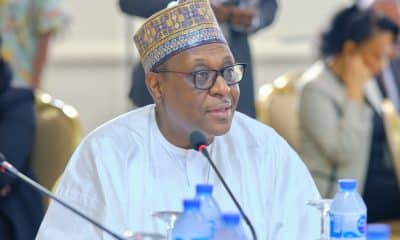Nigeria News
FG Approves National Policy To Address Health Workforce Migration

The Federal Government has sanctioned a new National Policy on Health Workforce Migration, as confirmed by the Minister of Health, Ali Pate.
In a statement issued via his official X handle on Monday, Pate emphasized the government’s dedication to addressing the issues related to healthcare human resources within the nation.
He noted that President Bola Tinubu led the Federal Executive Council meeting at the Presidential Villa in Abuja, during which the policy received approval.
According to the minister, this policy transcends a mere reaction to the current outflow of healthcare professionals; it represents a holistic approach to managing, leveraging, and reversing the migration of health workers.
The vision is to cultivate a robust workforce that is well-supported, fairly compensated, and effectively utilized to fulfil the healthcare requirements of all Nigerians.
Pate stated that the primary objective of the new policy is to promote the return and reintegration of Nigerian health professionals residing abroad.
He added that the policy seeks to simplify registration procedures and offer incentives to draw skilled professionals back to Nigeria, thereby fortifying the healthcare system.
“By establishing streamlined registration processes and providing attractive incentives, the policy not only encourages the return of our talented professionals but actively reintegrates them into our health system. This approach leverages the expertise of our diaspora to bridge gaps within the health sector.
“Also, the policy champions reciprocal agreements with other nations to ensure that the exchange of health workers benefits Nigeria. These bilateral and multilateral agreements are designed to protect national interests while respecting the rights and aspirations of our healthcare professionals. We call on recipient countries to implement a 1:1 match—training one worker to replace every publicly trained Nigerian worker they receive.
“Recognizing the importance of work-life balance, the policy includes provisions for routine health checks, mental well-being support, and reasonable working hours, especially for younger doctors. These measures aim to create a supportive work environment, reducing burnout and enhancing job satisfaction,” the minister stated












